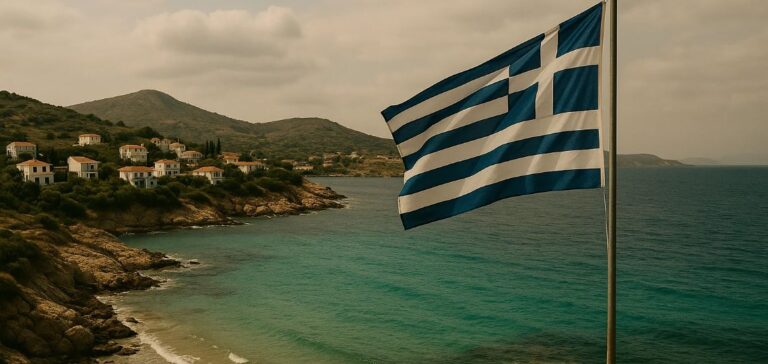The Ministry of Foreign Affairs of the Hellenic Republic has announced the implementation of a maritime spatial planning map aimed at regulating the use of marine areas under Greek sovereignty. This initiative, launched as part of a national strategy for blue economy development, complies with the European Directive 2014/89/EU while asserting Greece’s rights over its maritime space in accordance with international law.
The newly released map from Greek authorities includes the delineation of existing Exclusive Economic Zones (EEZ), notably the bilateral agreements with Italy in 1977 and 2020, as well as the 2020 agreement with Egypt. For areas not yet officially delimited, the map presents median lines indicating the outer limits of Greece’s continental shelf, pending future agreements with neighbouring coastal states.
A framework for marine resource exploitation
This maritime roadmap serves as a regulatory reference tool to organise human activities at sea, including fishing, transport and particularly energy exploration. It marks the first official documentation of Greece’s continental shelf limits filed with the institutions of the European Union, thereby reinforcing Athens’ legal stance in maritime sovereignty matters.
The map’s release occurs amid a sensitive geopolitical backdrop. The Aegean Sea, located to the east of Greece and close to Turkish shores, remains a hotspot for disputes, especially regarding hydrocarbon exploration rights. The Ministry of Foreign Affairs has clarified that the document does not represent a definitive EEZ delimitation but constitutes an interim delineation to outline the extent of Greece’s claimed rights.
A move with regional implications
In 2021, several Turkish exploratory missions in contested waters triggered a diplomatic crisis, leading Athens and Ankara to resume bilateral dialogue. The recently publicised mapping aims to stabilise maritime governance in the region by defining a usable reference framework for future investment and negotiation.
With a vast coastline bordered by the Ionian Sea to the west, the Aegean Sea to the east, and the Mediterranean Sea to the south, Greece holds a strategic position for access to underwater natural resources. This document establishes an administrative foundation from which businesses and institutional partners may plan exploration or exploitation projects within clearly defined legal boundaries.





















